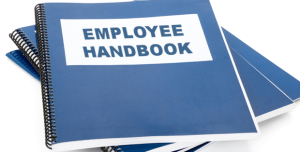When an employment relationship ends – whether by termination or resignation – employers must be aware of their obligation to pay any wages then due and owing, or be prepared to suffer the substantial consequences. Under Pennsylvania’s Wage Payment and Collection Law (“WPCL”) 43 P.S. §260.1 et seq., an employer who wrongfully withholds wages from an employee is subject to civil -- and possibly even criminal -- penalties. The protections afforded by the WPCL apply to all employees based in Pennsylvania.
As a threshold matter, under the WPCL, the employer must notify its employees at the time of hiring not only of the rate of pay, but also of the time and place of payment.
It shall be the duty of every employer to notify his employes at the time of hiring of the time and place of payment and the rate of pay and the amount of any fringe benefits or wage supplements to be paid to the employe...
43 P.S. § 260.4. Thereafter, employers must timely make such payments as scheduled and agreed upon.
Every employer shall pay all wages, other than fringe benefits and wage supplements, due to his employes on regular paydays designated in advance by the employer.
43 P.S. § 260.3. Accordingly, every employer is required to pay all wages due to an employee on regularly scheduled paydays which cannot be altered without adequate notice.
Of significant note, the WPCL has a rather expansive definition of “wages:”
"WAGES." Includes all earnings of an employe, regardless of whether determined on time, task, piece, commission or other method of calculation. The term "wages" also includes fringe benefits or wage supplements . . .
43 P.S. § 260.2a. Therefore, for purposes of the WPCL, wages include not only salary payments, but also other earnings of an employee such as earned commissions, earned bonus payments, unpaid vacation, holiday, or other guaranteed pay.
Of course, the WPCL does not create any substantive right to compensation on the part of the employee; rather, it only establishes an employee's right to enforce – ultimately at the employer’s additional cost and expense -- payment of wages and compensation to which an employee is otherwise entitled under the terms of an existing agreement, whether oral or written.
The WPCL has been described as a state law that provides a vehicle to recover unpaid wages -- and also damages -- in the event an employer improperly withholds compensation from an employee. The courts have noted that the fundamental purpose of the WPCL is to remove some of the obstacles employees may otherwise face in litigation by providing them with a legal remedy when an employer breaches its underlying obligation to pay wages.
Because the primary goal of the WPCL is to make employees whole again where wages have been wrongfully withheld by their employers, the legislature included the following provision:
The court in any action brought under this section shall, in addition to any judgment awarded to the plaintiff or plaintiffs, allow costs for reasonable attorneys' fees of any nature to be paid by the defendant.
43 P.S. § 260.9a(f). The Pennsylvania Superior Court has held that:
...the legislature intended a mandatory award of attorneys' fees for a plaintiff who prevails on a claim pursued under the Act. This interpretation is consistent with the general import of the statute, and goes to the very "essence" of its goal of making an employee whole again . . . Otherwise, employees who are unjustly deprived of their wages by their employers, may be deterred from filing suit because of burdensome legal costs . . . Similarly, employees who do file suit and are successful, would be subjected to payment of a substantial part of their award (which represents earned compensation) as attorneys' fees. This would clearly undermine the intent of the statute because employees who are unable to retain their wages will not be made whole. Without an award of attorneys' fees the end result would be only a partial recovery under the statute. Therefore, under the WPCL, an employee who has prevailed on a claim for past wages due, is entitled to attorneys' fees as a matter of entitlement.
Oberneder v. Link Computer Corp., 674 A.2d 720, 723 (Pa.Super.1995). Of course, the award of attorneys’ fees after a lengthy battle under the WPCL could dwarf the amount of “wages” which had been withheld.
Moreover, the WPCL allows an employee to claim penalties in the form of liquidated damages in an amount equal to twenty-five percent (25%) of the total amount of wages due -- if there is no good faith contest over the payment of wages. In this regard, the WPCL sets forth the following requirement:
In case of a dispute over wages, the employer shall give written notice to the employe or his counsel of the amount of wages which he concedes to be due and shall pay such amount without condition within the time set by this act. Acceptance by the employe of any payment made hereunder shall not constitute a release as to the balance of his claim.
43 P.S. § 260.6 [emphasis added].
Quite significantly, the WPCL defines an “employer” as follows:
"EMPLOYER." Includes every person, firm, partnership, association, corporation, receiver or other officer of a court of this Commonwealth and any agent or officer of any of the above-mentioned classes employing any person in this Commonwealth.
43 P.S. § 260.2a. To be clear, the inclusion of every “person,” “agent,” and “officer” within the definition means that each such representative of an employer who played an active role in decision-making may be held personally liable – and subject to not only civil damages, but also criminal penalties. For obvious reasons, employers need to know their obligations under the law . . . and employees need to know what their rights and remedies are when separated from employment!
If you have questions regarding wages, please contact Eric G. Marttila at (215) 345-8888 or emarttila@highswartz.com
Our attorneys in Bucks County and Montgomery County are here to assist you.
The information above is general: we recommend that you consult an attorney regarding your specific circumstances. The content of this information is not meant to be considered as legal advice or a substitute for legal representation.









